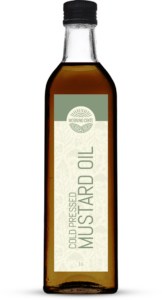Businesses which have survived and thrived during the last 18 months have wanted first-rate adaptability, resourcefulness, imagination, and a slice of success to be in a area that may nonetheless operate.
Importing and production have necessitated modifications and wondering out of doors the container like by no means before.
C.H. Robinson, as a worldwide shipping and logistics enterprise with a sturdy presence in Australia, has needed to revolutionise the manner it makes use of sea-freight to retain to thrive and to assist its companions prosper.
Pre-pandemic, conventional sea-freight consisted particularly Full Container Loads being shipped for one enterprise however that has modified as availability has grow to be much less and fees have increased.
But with a lot uncertainty for companies over deliver, availability or even the capacity to operate, C.H. Robinson needed to suppose out of doors the container approximately what become going within the bins. The end result has been permitting its companions to have a ways more flexibility and margin for mistakess through encouraging their use of Less than Container Loads (LCLs).
“As we technique the busiest time of the yr for imports, companies can keep away from panic shopping for inventory and rely upon a regular and constant deliver through the usage of consolidated offerings,” stated C.H. Robinson Vice President Oceania, Andrew Coldrey.
“Many of our clients are searching at smaller consolidated loads, growing frequency and thereby the usage of much less warehouse area and personnel to sell off.”
“For example, why pressure an auto-components provider to carry over a complete box of components and probably placed their enterprise at chance via retaining a huge inventory, whilst you may fill that box with a lot of distinctive items for diverse clients,” he asked.
This is a sea-freight formulation that has labored nicely for CoolDrive Auto Parts, which resources extra than 10,000 Australian companies.
CoolDrive’s Supply Chain General Manager, Matthew O’Shea, says “LCLs now no longer simplest provide us tremendous flexibility however additionally gives that identical flexibility to the companies we deliver.
“We have 200,000 components in our catalogue coming from six hundred providers in Asia, Europe and the Americas.
“With LCLs, we are able to see how new merchandise carry out with out overcommitting to them. It has helped us develop our catalogue, create relationships with new providers and allowed us to be even extra bendy and conscious of unique client needs.”
CoolDrive gets weekly deliveries via C.H. Robinson which in Melbourne makes use of Secon to choose up bins from the wharves, sell off the LCLs at its Truganina base and supply to client generally with 24 – 36 hours of arrival.
Secon’s Business Development Manager Daniel Considine stated that the enterprise has by no means visible situations like they may be proper now.
“In the modern weather consolidation offerings serve extra than simply area utilisation. They are important for neighborhood enterprise and monetary continuity,” Mr Considine stated.
“Whilst congestion is ubiquitous in our industry, our capacity to consolidate and paintings together, to percentage our resources, and in the end launch the strain valve resulting from congestion has proved extra essential than we anticipated.”
In a international in which the tech giants have a lens firmly centered at the sharing financial system platforms (i.e. Uber and Airbnb), C.H. Robinson, Secon and forward-wondering companies like CoolDrive are nicely located at the leading edge of sea freight consolidation offerings to supply on enterprise expectations, alleviate congestion and make certain monetary continuity, from deliver to shelf.






More Stories
Mobile repair service – ideal if you have a hectic schedule!
Crafted Purity: The Timeless Appeal of Natural Cooking Oils
Creating Your Brand with Private Label Medical-Grade Skincare